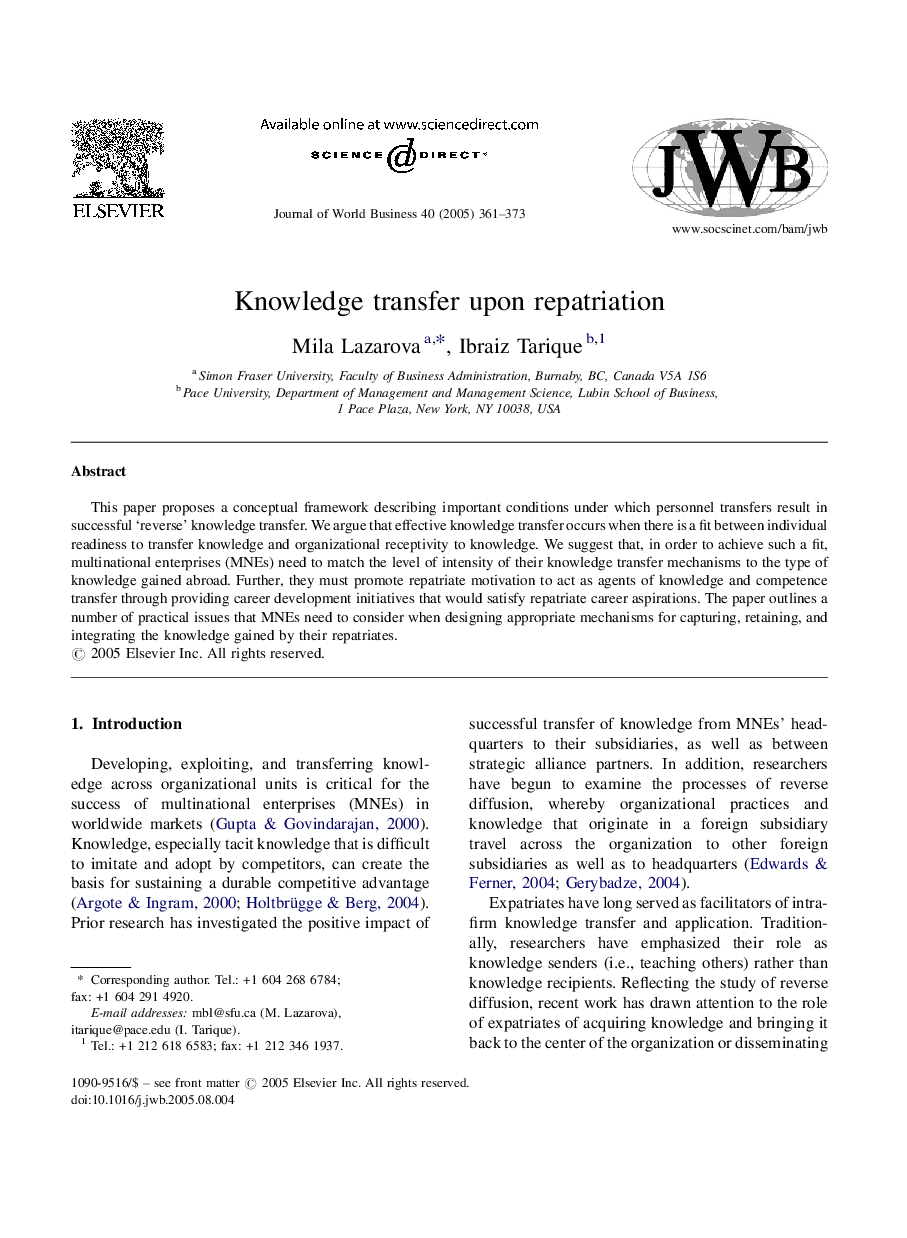| Article ID | Journal | Published Year | Pages | File Type |
|---|---|---|---|---|
| 9733126 | Journal of World Business | 2005 | 13 Pages |
Abstract
This paper proposes a conceptual framework describing important conditions under which personnel transfers result in successful 'reverse' knowledge transfer. We argue that effective knowledge transfer occurs when there is a fit between individual readiness to transfer knowledge and organizational receptivity to knowledge. We suggest that, in order to achieve such a fit, multinational enterprises (MNEs) need to match the level of intensity of their knowledge transfer mechanisms to the type of knowledge gained abroad. Further, they must promote repatriate motivation to act as agents of knowledge and competence transfer through providing career development initiatives that would satisfy repatriate career aspirations. The paper outlines a number of practical issues that MNEs need to consider when designing appropriate mechanisms for capturing, retaining, and integrating the knowledge gained by their repatriates.
Related Topics
Social Sciences and Humanities
Business, Management and Accounting
Business and International Management
Authors
Mila Lazarova, Ibraiz Tarique,
